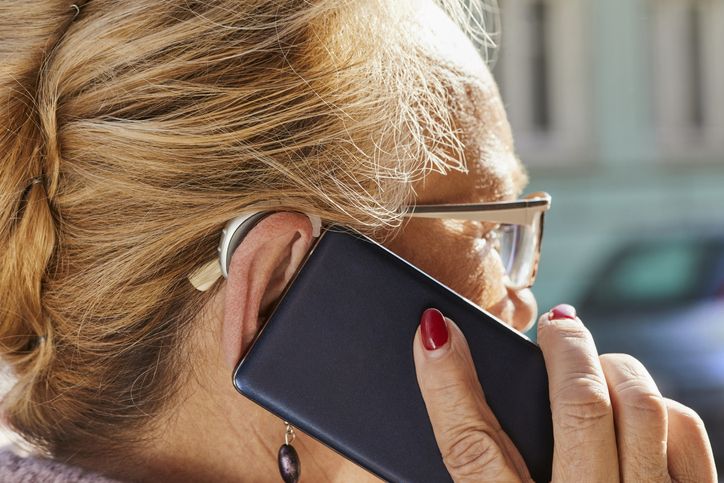
Source: Westend61 / Getty
Clearly, “Karen” has become so much of a problem that legislators are attempting to address racial profiling white women in more concrete ways. But questions arise as to whether certain policies are the right approach to tampering down the tantrums of a police-happy Karen.
According to Forbes, San Francisco Supervisor Shamann Walton introduced the “CAREN Act”, or the Caution Against Racially Exploitative Non-Emergencies Act, which would impose fines on anybody who makes false and racially discriminatory emergency reports in San Francisco.
Making a false report is already a crime, but the bill would go further and amend the San Francisco Police Code to make it unlawful for a person to fabricate a report based on someone’s ethnicity, race, religious affiliation, gender or sexual orientation. Under this legislation, the person who was subject to the call would be allowed to seek civil remedy through the courts, Natalie Gee, Walton’s chief of staff, explained.
The bill comes as several “Karen” incidents went viral in San Francisco. The most recent example was when a white couple called the neighborhood police watch on a Filipino-American neighbor for writing “Black Lives Matter” in chalk in front of his house while demanding to know if he was a resident there.
The CAREN Act is the latest in a number of nationwide legislative attempts to stop the Karens of the world. Just last month, California Assemblyman Rob Bonta introduced a bill that would make discriminatory 911 calls a hate crime in the state. Meanwhile, New York is debating statewide legislation that would make racially biased 911 calls a hate crime. Such a bill was introduced in 2018 by New York State Senator Jesse Hamilton.
Just this week, Amy Cooper — who called the cops on a Black man in Central Park after he asked her to keep her dog on a lease — was charged with falsely reporting an incident in the third degree, which is punishable with up to a year in jail. However, Cooper’s charges, which were announced on Monday, don’t take into account any racial bias.
Some Black leaders have concerns about involving the criminal justice system in Karen incidents. Following worldwide protests over police and state violence against Black people, the push has become stronger to divest from punitive forms of punishment such as jails and prisons. Even Karens are being reassessed as to what would be the best solution to address racist white women without involving the tools that they often use against Black people.
“I have no sympathy for Amy Cooper, but I do want us to wrestle with what it means for us to continue to seek justice through courts, police, and prisons,” wrote professor and activist Marc Lamont Hill in a Monday tweet. “In the current world, the vulnerable have few resources and little recourse when the powerful do harm. Calling for killer cops to be jailed, for example, is often the only available solution for ‘justice’ in the short-term. I understand this dilemma, even as I struggle with it.”
I have no sympathy for Amy Cooper, but I do want us to wrestle with what it means for us to continue to seek justice through courts, police, and prisons. As an abolitionist, it’s a real struggle for me.
— Marc Lamont Hill (@marclamonthill) July 6, 2020
Hill ended by saying:
“But to ultimately produce an abolitionist future, we have to begin to produce alternative possibilities. We have to resist the urge for retributive approaches. We won’t have all the answers immediately, but we have to keep doing that work. Especially when it is difficult. We also have to consider that these retributive approaches will not largely impact the powerful. Who will be most likely criminalized if we intensify prosecutions for filing false police reports? Not the Amy Coopers of the world.”
We also have to consider that these retributive approaches will not largely impact the powerful. Who will be most likely criminalized if we intensify prosecutions for filing false police reports? Not the Amy Coopers of the world.
— Marc Lamont Hill (@marclamonthill) July 6, 2020
Hill has a point about how criminalizing certain actions usually leads to Black people receiving the most surveillance. Criminalizing marijuana possession is just one example of how a law disproportionately impacts Black people as supposed to white people.
Although Black people might not be more likely to call the police in the same vain as a Karen, criminalizing such an act could cause white folks to claim racial bias if a Black person should ever need to call the cops on a white person, which would further funnel more Black people into the criminal justice system.
If the political goal is to divest from prisons and police altogether (e.g. defunding police or abolishing police), a policy criminalizing racially motivated calls would still give power to police and jails while also giving money to the state via fines. Where would this money go? Would it go to police departments that are still brutalizing Black people? Would it go to the courts who are still criminalizing Black people? Or would more appropriate action involve fines paid to the victim of the racially motivated 911 call?
These are all things to consider as the CAREN Act and its imitators start to gain traction across the country.
SEE ALSO:
Amid Push For Reforming Law Enforcement, Should Amy Cooper Have Been Charged?
[ione_media_gallery id=”3944359″ overlay=”true”]
